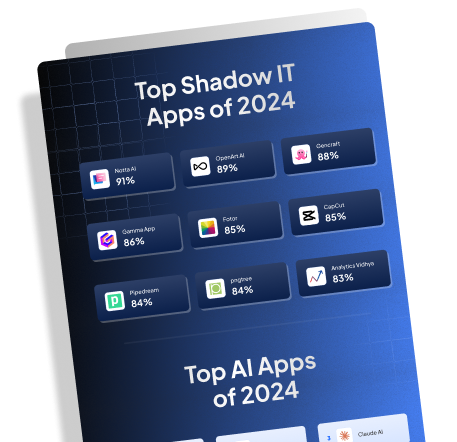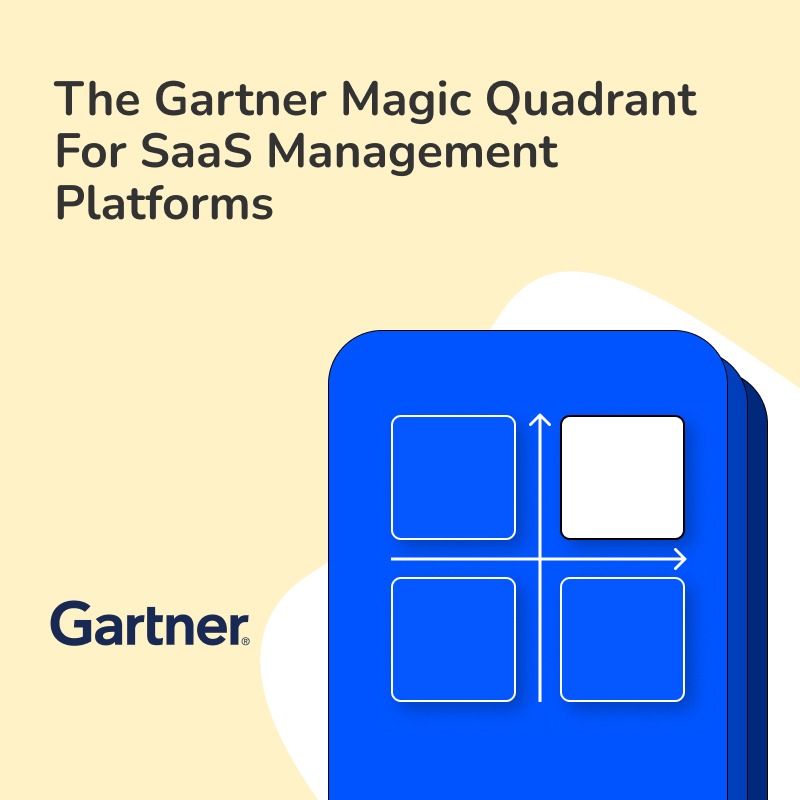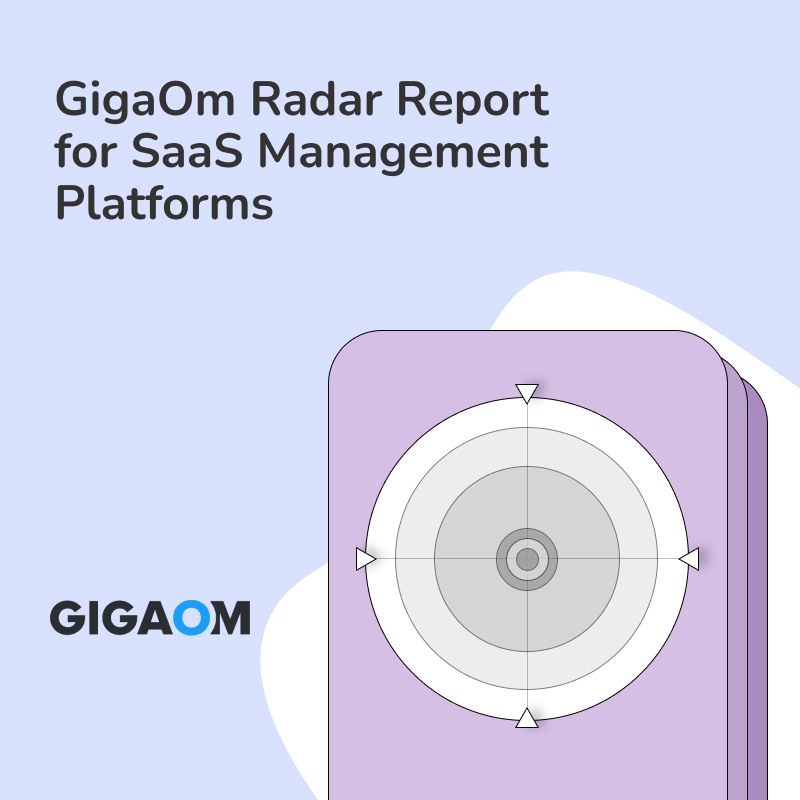A Process Manager (PM) is an expert in process management whose primary role is to oversee and optimize business processes to improve efficiency and productivity. They use methodologies like business process management (BPM) to scrutinize, reengineer, and enhance workflow patterns, enabling organizations to reach their goals more seamlessly with less waste of time and resources.
Note: As an IT Manager handling multiple cloud apps, are you struggling to maintain efficiency and compliance? Do you want a customizable tool that integrates and scales your SaaS-related work? Revolutionize your approach to process management with Torii’s SaaS Management Platform
But what does it mean if your business runs ‘efficiently’ without a process manager?
Efficiency is not just about keeping the operations going; it pertains to streamlining processes to deliver higher value. This is where a PM comes in, focusing on process improvement through meticulous process design and the adoption of process automation. A PM will spend significant amounts of time on process documentation, leveraging techniques like process mapping to capture every detail about how a process is executed.
Adopts Strategies for Optimization: As businesses evolve, so do their needs and requirements. This necessitates constant process analysis and modeling for optimization. A PM adopts different strategies for process optimization, ensuring the organization’s activities align with its strategy. They establish process governance to safeguard compliance and adherence to standards at all stages of the process.
Process Monitoring and Execution: A critical aspect of PM’s role is process monitoring which helps them track process efficiency and execution. They analyze process metrics to identify gaps and then design controls to bridge these gaps. They’re instrumental in process standardization, ensuring consistent protocol across the organization, which translates to reliability and predictability.
Process Reengineering: Using these insights, the PM delivers on process reengineering, which involves overhauling existing processes for better outcomes. As part of this, process audit plays a critical role in identifying inefficiencies and non-compliance issues that can affect the overall productivity and bottom line.
In summary, a Process Manager is a strategic driver of efficiency that aids in moving from unregulated operations to a well-documented, standardized, and controlled environment. Their expertise in business process management, process improvement, automation, and compliance results in a system where processes are not just executed but are optimized for peak performance.
Examples of a Process Manager
Manufacturing Industry
A Process Manager at a large manufacturing company might use process mapping to outline the intricate steps of production from raw inputs to the finished product. They could further apply process improvement strategies to identify and eliminate wastage, effectively increasing process efficiency.
Healthcare Setting
In a healthcare setting, PM demonstrates efficient process design and process reengineering. By implementing a process monitoring system for patient file handling, the manager can decrease wait times. Alongside this, process documentation ensures that medical staff adheres to best practices while process audits address discrepancies in the system thereby enforcing process governance and ensuring quality service delivery.
Real-World Example
An IT Manager at a multinational corporation, who uses the Torii SaaS Management Platform for process automation. Given the complexity of managing hundreds of cloud apps across multiple locations, process control becomes a critical issue. With Torii, this manager can discover Shadow IT, streamline SaaS operations such as on/offboarding, optimize licenses, and reduce expenses. Importantly, custom plugins and integrations help scale their SaaS-related work, boosting process standardization and compliance.
Across these diverse settings, Process Managers deploy various process management tools and strategies, from process analysis and modeling to process optimization, crucial for effective business operation.
Best Practices for a Process Manager
Effective Process Management embodies a blend of strategic acumen and operational proficiency. This realm includes techniques such as business process management, process improvement, and process design, ensuring seamless process flows and enhancing efficiency. To practice this at its best, we’ll create a tactical and practical step-by-step guide that delineates the process.
Process Analysis
Step one is process analysis. Understand your existing processes in their raw form. Proceed with process mapping to visualize the way tasks and workflows intertwine. Utilize a comprehensive SaaS Management Platform like Torii for an exhaustive analysis. It can help detect Shadow IT, giving a clear picture of your processes.
Process Optimization
Next, focus on process optimization. Pinpoint redundancies, bottlenecks, and inefficiencies in your process map and strategize to eliminate them. Process reengineering may be necessary to drive radical improvements. This step will significantly amplify process efficiency and minimize unnecessary costs.
Process Standardization
Process standardization ensues, ensuring all the activities are consistent and predictable. It enhances process control and ensures that process execution follows a set pattern. Consider frequently updating process documentation to reflect every relevant change.
Process Automation
The subsequent step involves process automation. Automation reduces manual tasks, enhances speed, and minimizes errors. With Torii, empowering process automation becomes effortless. It can automate SaaS operations, contributing to significant time savings.
Process Metrics
Now, focus on process metrics. It’s crucial to gauge the effectiveness of your processes and the improvements they undergo. Defining process metrics to monitor performance and measure success will provide a realistic depiction of your process health.
Process Governance
Once your processes are running at their best, emphasize process governance. This involves setting up a process framework to ensure compliance, make decisions, and handle potential process deviations. No process is foolproof and process audit comes into play here, verifying the practices against the set standards.
Process Monitoring
The final step is process monitoring, critical for maintaining smooth operations. Regular evaluations and reviews keep you on top of any sudden changes or issues.
Remember, effective management of processes requires a perpetual cycle of these steps, as process improvement is ongoing. Leverage a tool like Torii, skilled at process discovery, audit, automation, and compliance, assisting in making your process management significantly more efficient.
Related Concepts for a Process Manager
- Process Manager: A professional responsible for overseeing and coordinating various aspects of process management within an organization.
- Process management: The systematic approach of identifying, designing, implementing, and continuously improving business processes to achieve specific objectives.
- Business process management: A discipline that focuses on managing and optimizing end-to-end business processes to enhance efficiency, effectiveness, and customer satisfaction.
- Process improvement: The practice of analyzing existing processes to identify opportunities for enhancement and implementing changes to achieve improved outcomes.
- Process design: The act of creating and configuring new or existing processes to align with business goals and operational requirements.
- Process automation: The use of technology to automate repetitive and manual tasks within a process, resulting in increased efficiency and reduced human error.
- Process documentation: The process of capturing and recording information about a process, such as its purpose, steps, inputs, outputs, and related guidelines or policies.
- Process mapping: The visual representation of a process flow, highlighting the sequence of activities, decision points, and interactions between various stakeholders.
- Process optimization: The ongoing effort to improve a process by eliminating bottlenecks, reducing waste, and maximizing efficiency and effectiveness.
- Process governance: The establishment of policies, procedures, and guidelines to ensure that processes are executed consistently and aligned with organizational standards.
- Process monitoring: The systematic tracking and evaluation of process performance to identify deviations, trends, or areas for improvement.
- Process analysis: The examination and evaluation of process data, performance metrics, and other relevant information to identify strengths, weaknesses, and opportunities for enhancement.
- Process modeling: The creation of a simplified representation or simulation of a process to gain insights into its structure, behavior, and potential improvements.
- Process standardization: The act of establishing uniform procedures, guidelines, and rules for executing a process to ensure consistency and reduce variation.
- Process efficiency: The measure of how well a process utilizes its resources to achieve desired outcomes, often expressed as the ratio of outputs to inputs.
- Process metrics: Quantitative measures used to assess process performance, such as cycle time, throughput, error rates, or customer satisfaction.
- Process control: The methods and tools used to monitor, regulate, and manage the variables that impact process performance to ensure desired outcomes.
- Process execution: The actual implementation and operation of a process, involving the execution of activities, decisions, and tasks as defined in the process model.
- Process reengineering: The radical redesign of existing processes to achieve significant improvements in performance, efficiency, and customer satisfaction.
- Process audit: The systematic review and examination of a process to assess its adherence to defined standards, identify weaknesses, and suggest improvements.
- Process compliance: Ensuring that processes adhere to legal, regulatory, and internal organizational requirements to mitigate risk and ensure ethical conduct.
FAQs: Process Manager
Q: What is a Process Manager?
A: A Process Manager is a software tool or system that helps manage and streamline business processes within an organization.
Q: What are the benefits of using a Process Manager?
A: Using a Process Manager can result in improved efficiency, increased productivity, better communication, enhanced collaboration, and greater visibility into business processes.
Q: How does a Process Manager work?
A: A Process Manager works by providing a centralized platform where users can create, monitor, and update processes. It typically includes features like workflow automation, task management, reporting, and analytics.
Q: What are some popular Process Manager software options?
A: Some popular Process Manager software options include Trello, Asana, Jira, Monday.com, and Microsoft Power Automate.
Q: How can a Process Manager help with task management?
A: A Process Manager allows users to define tasks, assign them to individuals or teams, set deadlines, track progress, and ensure timely completion of tasks.
Q: Can a Process Manager integrate with other systems?
A: Yes, most Process Manager software options offer integrations with other popular tools like CRM, project management software, email clients, and document management systems.
Q: Are there industry-specific Process Managers?
A: Yes, there are industry-specific Process Managers available that cater to specific sectors like manufacturing, healthcare, banking, and more.
Q: Can a Process Manager automate workflows?
A: Yes, a Process Manager can automate repetitive tasks, trigger actions based on predefined conditions, and enable the flow of information between different departments or individuals.
Q: How can a Process Manager improve collaboration?
A: A Process Manager provides a centralized platform where teams can easily communicate, share documents, discuss tasks, and collaborate on projects, leading to better teamwork and coordination.
Q: Can a Process Manager generate reports and analytics?
A: Yes, a Process Manager often includes reporting and analytics features that enable users to track key metrics, identify bottlenecks, measure performance, and make data-driven decisions.
Q: Is a Process Manager suitable for small businesses?
A: Yes, a Process Manager can be beneficial for small businesses as it helps them streamline operations, improve efficiency, and enhance productivity.
Q: What skills are required to use a Process Manager?
A: Basic computer skills and familiarity with the software’s user interface are usually sufficient to use a Process Manager effectively. Some platforms offer training or tutorials to help users get started.
Q: Can a Process Manager be accessed remotely?
A: Yes, many Process Manager software options are cloud-based, allowing users to access and manage processes remotely from any device with an internet connection.
Q: How much does a Process Manager cost?
A: The cost of a Process Manager varies depending on the software provider, features offered, and the number of users. Prices can range from free versions with limited features to enterprise plans with higher costs.
Q: How can I choose the right Process Manager for my organization?
A: To choose the right Process Manager, consider your organization’s specific needs, budget, scalability, ease of use, integrations, customer support, and user reviews.





